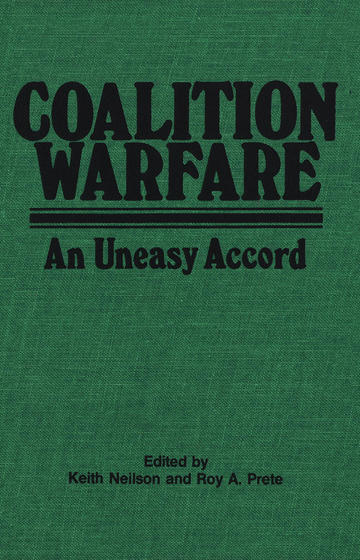The essays that comprise this volume clearly demonstrate that coalitions have dramatically altered the shape of war. Paul Kennedy's overview of coalitions over the past century shows that, with coalitions firmly established as viable in the minds of strategists, wars have become markedly lengthier, bloodier, and much more expensive. Three of the essays focus on explicitly military aspects of the two world wars: Norman Stone's on the Austro-German Alliance, 1914-18; Ulrich Trumpener's on the German-Ottoman Coalition, 1914-18; and Ian Nish's on the Greater East Asian Co-prosperity Sphere. J. L. Granatstein pursues a contrasting, though equally enlightening, course, focussing on Hume Wrong, the "functional principle," and the difficulties inherent in Canada's role in the diplomacy of the post-World War II era. In keeping with the immediacy of Granatstein's concerns is John Erickson's lucid presentation of Soviet military philosophy, a matter of crucial and immediate concern.
This book will be of interest to military historians,
political scientists, and the more general reader intrigued
by military history and philosophy.
These essays, edited and compiled by Keith Neilson and Roy Prete, who teach in the Department of History at the Royal Military College, Kingston, were presented at the Eighth Royal Military College Military History Symposium.
Keith Neilson is the author of a number of articles on British military history and Anglo-Russian relations. He is an associate professor at the Royal Military College of Canada and the author of Strategy and Supply: The Anglo-Russian Alliance 1914–17 (London, 1984).
|Roy A. Prete teaches in the Department of History at the Royal Military College of Canada, Kingston.



